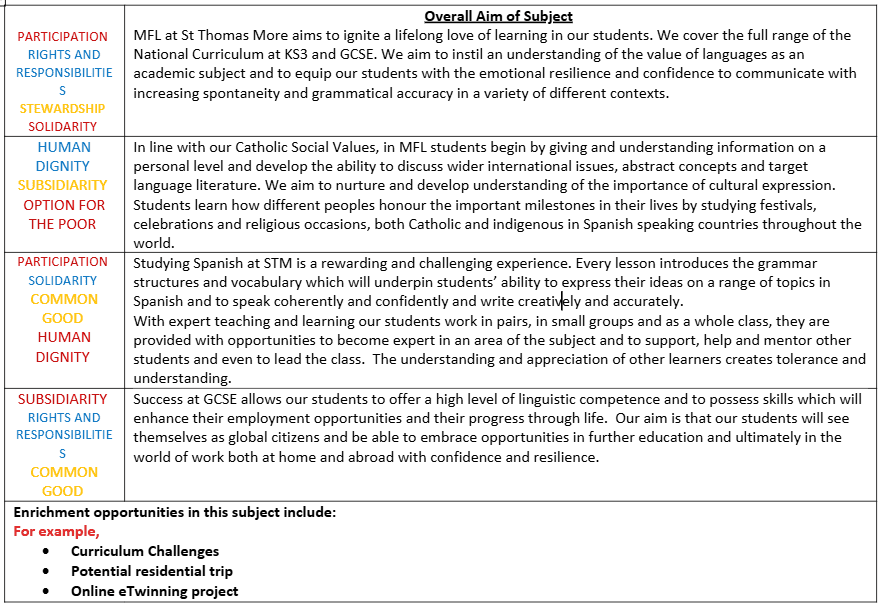
What We do in MFL
Students will:
- Identify and use tenses or other structures, which convey the present, past, and future as appropriate to the language studied.
- Use and manipulate a variety of key grammatical structures and patterns, including voices and moods, as appropriate.
- Develop and use a wide-ranging and deepening vocabulary that goes beyond their immediate needs and interests, allowing them to give and justify opinions and take part in discussion about wider issues.
- Use accurate grammar, spelling and punctuation to develop linguistic competence.
- Listen to a variety of forms of spoken language to obtain information and respond appropriately.
- Transcribe words and short sentences that they hear with increasing accuracy.
- Initiate and develop conversations, coping with unfamiliar language and unexpected responses, making use of important social conventions such as formal modes of address.
- Express and develop ideas clearly and with increasing accuracy, both orally and in writing.
- Speak coherently and confidently, with increasingly accurate pronunciation and intonation.
- Read and show comprehension of original and adapted materials from a range of different sources, understanding the purpose, important ideas and details, and provide an accurate English translation of short, suitable material.
- Read literary texts in the language [such as stories, songs, poems and letters], to stimulate ideas, develop creative expression and expand understanding of the language and culture Languages.
- Write prose using an increasingly wide range of grammar and vocabulary, write creatively to express their own ideas and opinions, and translate short written text accurately into the foreign language



